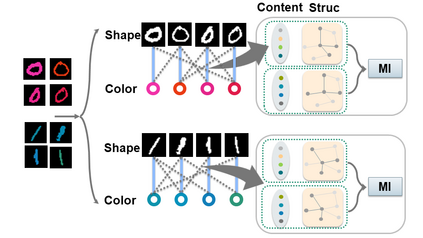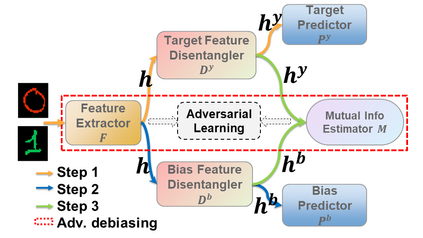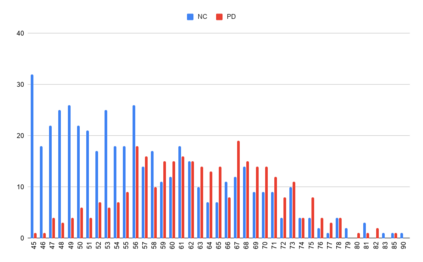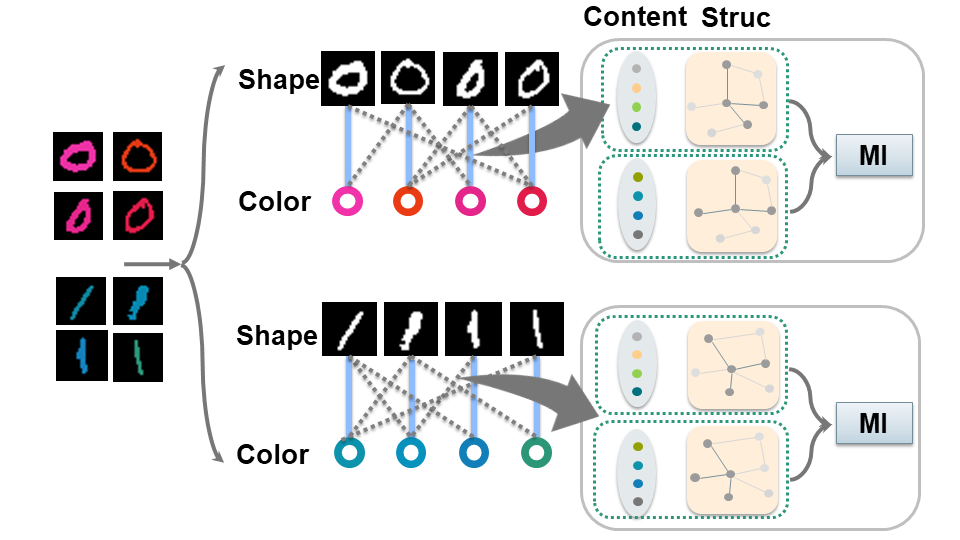Deep learning algorithms mine knowledge from the training data and thus would likely inherit the dataset's bias information. As a result, the obtained model would generalize poorly and even mislead the decision process in real-life applications. We propose to remove the bias information misused by the target task with a cross-sample adversarial debiasing (CSAD) method. CSAD explicitly extracts target and bias features disentangled from the latent representation generated by a feature extractor and then learns to discover and remove the correlation between the target and bias features. The correlation measurement plays a critical role in adversarial debiasing and is conducted by a cross-sample neural mutual information estimator. Moreover, we propose joint content and local structural representation learning to boost mutual information estimation for better performance. We conduct thorough experiments on publicly available datasets to validate the advantages of the proposed method over state-of-the-art approaches.
翻译:深度学习算法从培训数据中挖掘知识,从而可能继承数据集的偏差信息。结果,获得的模型在现实应用中将概括性差,甚至误导决策程序。我们提议消除目标任务滥用的偏差信息,采用交叉抽样对抗性贬低法(CSAD)方法。CSAD明确提取了与地物提取器产生的潜在代表性脱钩的目标和偏差特征,然后学习发现并消除目标与偏差特征之间的关联。相关计量在对抗性贬低中起着关键作用,由跨抽样的线性相互信息估计器进行。此外,我们提议联合内容和地方结构代表学习,以促进相互信息估计,提高性能。我们对公开的数据集进行彻底试验,以验证拟议方法相对于最新方法的优势。







